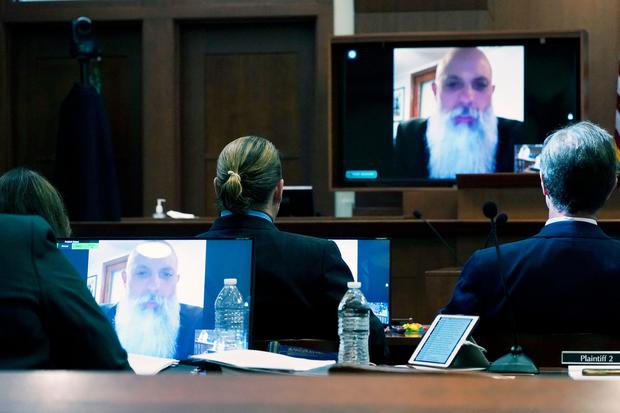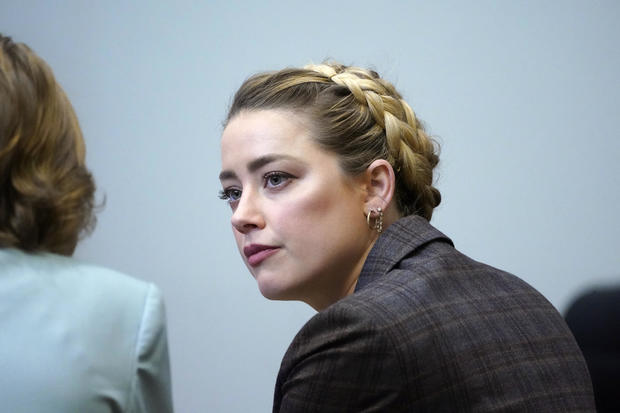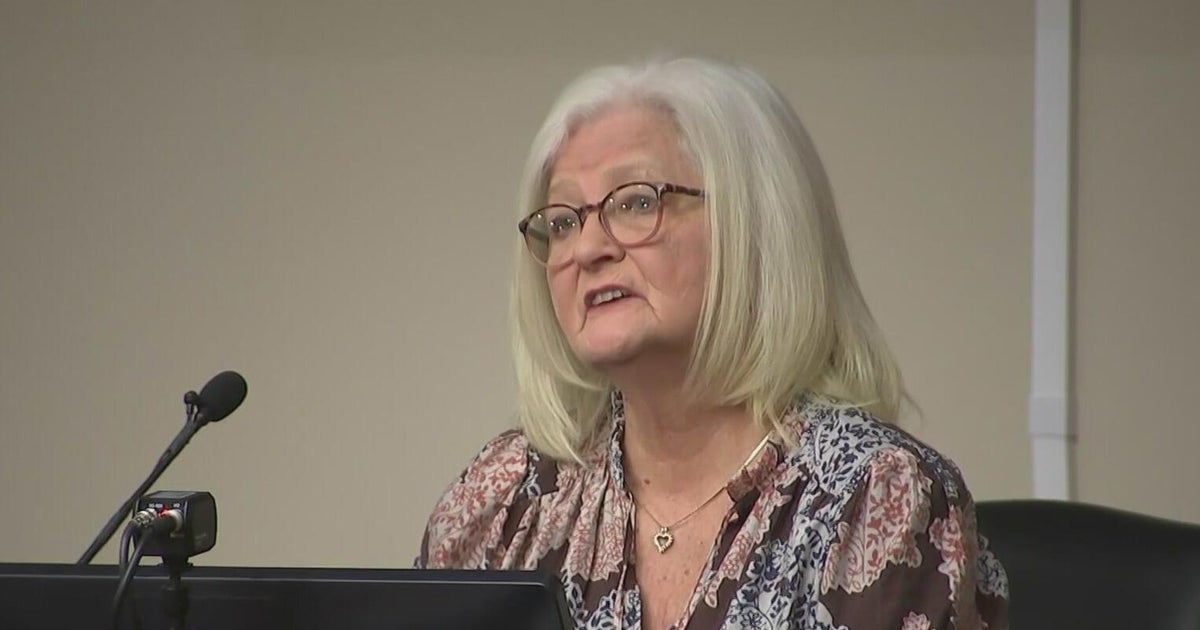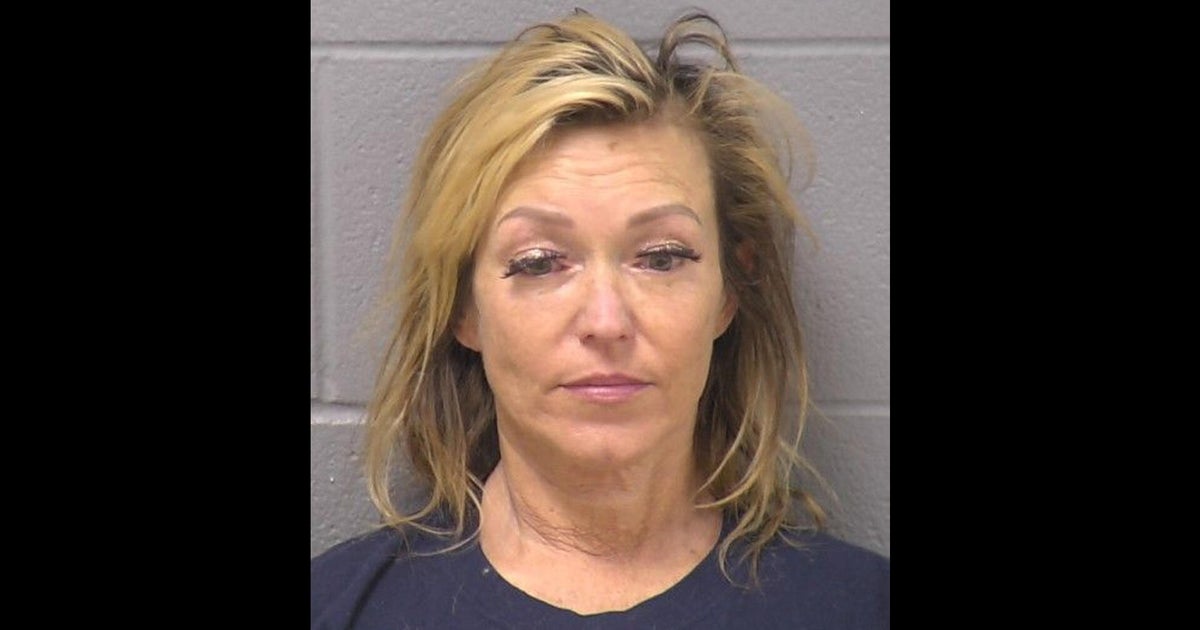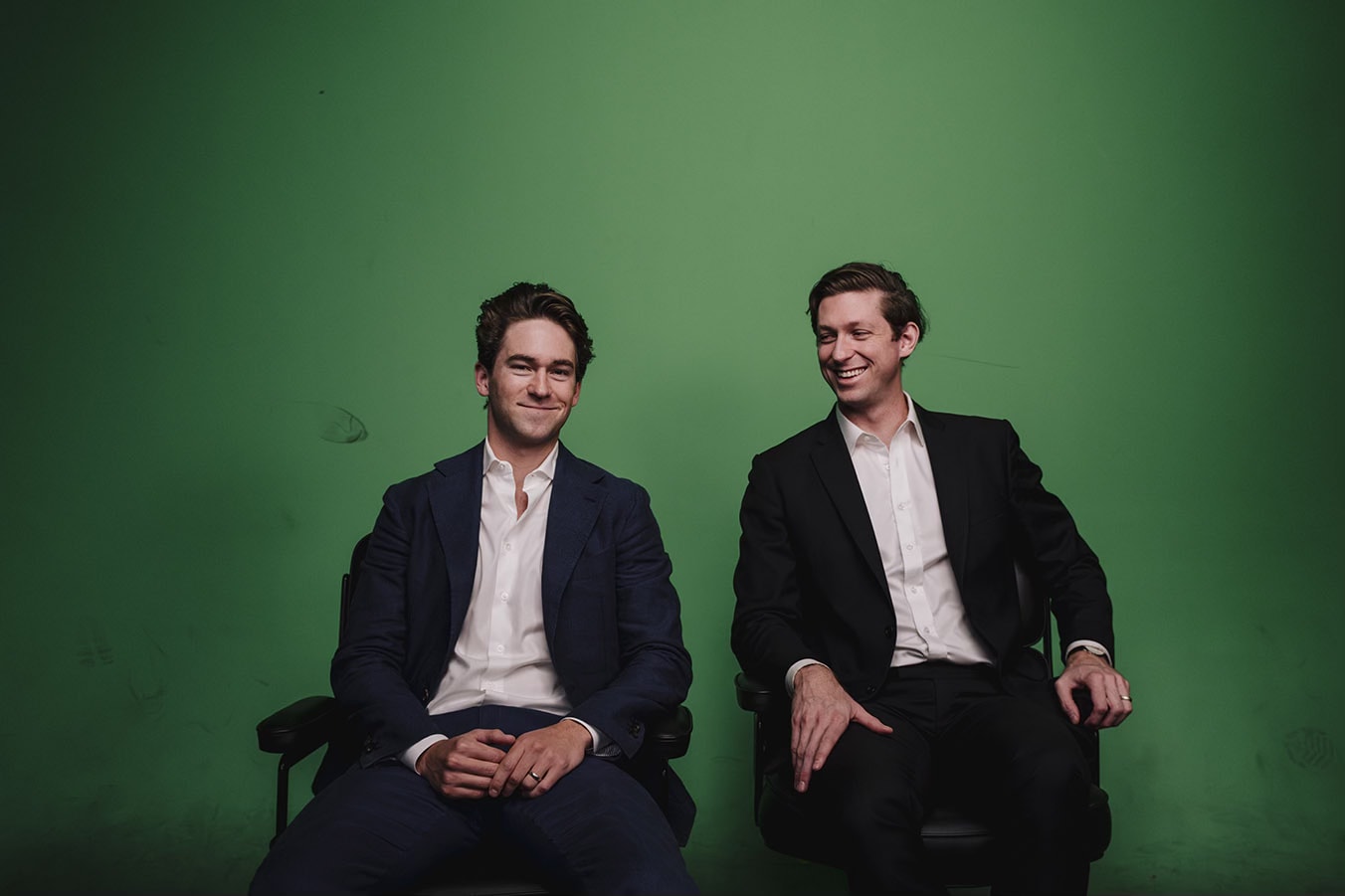Security guard testifies in Johnny Depp's defamation lawsuit against Amber Heard
The trial over Johnny Depp's $50 million defamation suit against ex-wife Amber Heard resumed Monday with testimony from a man who worked as a security guard for Depp. Travis McGivern described hearing arguments between the couple ramp up after they returned from a trip to Australia in March 2015, "I wouldn't say nightly, but every other night, several times a week."
Heard has accused Depp of physically and sexually assaulting her on multiple occasions before and during their brief marriage. He then sued her for defamation after she wrote an op-ed in 2018 in The Washington Post in which she referred to herself as a "public figure representing domestic abuse."
She never mentioned Depp by name in the op-ed, but his lawyers argued it was a clear reference to accusations Heard made in 2016 when she sought a restraining order against him.
In Monday's testimony, McGivern said he witnessed "lots of name-calling, lots of f-bombs," which he said were typically from "Miss Heard, directing her feelings toward Mr. Depp." He also described an argument in which "I saw Miss Heard throw a Red Bull can from her position that struck Mr. Depp in the back."
"At that point, I moved closer to Mr Depp," he said. "I didn't care that I was in the middle of their conversation at that point. I didn't want my client getting hit with anything else so I stood right by Mr. Depp. The verbal onslaught continued from both of them. Mr. Depp was giving as good as he got at that point. He was angry and agitated. At one point Miss Heard threw something else, either a purse or some sort of bag or something that she had up there. I was able to knock it away so it didn't hit him. At one point, she spit at him."
Last week, jurors heard about the op-ed at the center of the case. Terence Dougherty, general counsel for the American Civil Liberties Union (ACLU), testified Thursday that the group drafted the article under Heard's name, reflecting her role as an ACLU ambassador on gender violence issues.
On Monday, Depp's agent Jack Whigham testified that the op-ed was different from other articles because it was a "first-person account coming from the victim."
"It was extremely impactful," he added, calling it "catastrophic" to Depp's career.
Whigham said Depp was still able to work after the initial allegations made against him in 2016. He was paid $8 million for "City Of Lies," $10 million for "Murder on the Orient Express" and $13.5 million for "Fantastic Beasts: The Crimes of Grindelwald," all of which shot in 2017, albeit under contracts reached prior to the allegations made against him.
After the article came out, he said, Depp struggled to get any kind of work. He had to take a pay cut - down to $3 million - to do the independent film "Minimata," and a $22.5 million verbal deal he had with Disney for a sixth "Pirates" film was scuttled, Whigham said.
On cross-examination, though, Heard's lawyers asked whether the "Pirates" deal had already gone south by the time Heard's article was published. Whigham acknowledged he never had a written deal for Depp to appear in a sixth "Pirates" film." And while he said "Pirates" producer Jerry Bruckheimer talked favorably throughout 2018 about Depp coming back to the franchise, Disney executives were noncommittal at best.
By early 2019 - weeks after Heard's op-ed - Whigham said it was clear that Depp's role in any "Pirates" film was scuttled and that producers were instead looking to move ahead with Margot Robbie in a lead role.
Heard's lawyer Elaine Bredehoft pushed back aggressively on the agent's assertion on cross-examination, suggesting that the article was inconsequential amid a stream of bad publicity for Depp. Heard's lawyers have cited a variety of factors — including reports of heavy drug and alcohol use, a lawsuit by a crew member in July 2018 who says he was punched on set by Depp, and a separate libel lawsuit Depp filed against a British newspaper in 2018 — as things that damaged Depp's image more than the Post article.
Depp has maintained the accusations and the article contributed to an unfairly ruined reputation that made him a Hollywood pariah and cost him his role in the lucrative "Pirates of the Caribbean" movie franchise.
Depp sued in Fairfax County Circuit Court in Virginia after the article was published. In four days of testimony in April, he said he never hit Heard and that he has never struck a woman. He accused Heard of physical and emotional abuse, and she has filed a countersuit for $100 million against him.
Dougherty from the ACLU testified that numerous lawyers from the organization reviewed the article at various stages, and asked Heard's lawyers to review the piece as well to ensure it did not run afoul of a nondisclosure agreement she had with Depp in connection with the couple's 2016 divorce.
During those discussions, Heard sent back an edited version approved by her lawyers that "specifically neutered much of the copy regarding her marriage," according to an email from Jessica Weitz, an ACLU employee who coordinated with Heard.
According to the email, though, Heard was looking for a way to have a deleted passage restored to the article.
The various drafts of the articles were not shown to the jury so it's not clear how many personal details were in the first draft and how much Heard's lawyers had excised.
But the final version contains very little about Heard's personal experiences. It doesn't mention Depp at all. In addition to the passage about "a public figure representing domestic abuse," in another passage she writes, "I had the rare vantage point of seeing, in real time, how institutions protect men accused of abuse."
Much of the article talks about legislative priorities for advocates of domestic abuse prevention. Other passages refer to parts of her personal life unrelated to Depp.
Dougherty testified that "the language that wound up in the final op-ed piece was very different from the original language" in the draft, Dougherty said. "It did not refer directly to Ms. Heard's relationship with Johnny Depp."
While the trial is supposed to be over whether Depp was defamed in the article, very little testimony in the first three weeks, leading up to Thursday, has related to the article itself or its contents. Heard's lawyers predicted at the outset of the trial that it would become a mudslinging soap opera that would delve into messy details of Depp and Heard's personal lives.
Heard's lawyers, though, have said that even if the jury were to believe that she was never abused by Depp, Heard should still prevail in the lawsuit because the article is not about Depp, does not defame him, and Heard's free-speech rights allow her to weigh in on matters of public importance like domestic violence.
Much of Dougherty's testimony also centered on whether Heard has fulfilled a promise to donate $3.5 million — half of her $7 million divorce settlement with Depp — to the ACLU. Dougherty testified that the ACLU credits her with contributing $1.3 million so far and expected the money to come in over a 10-year period, but that she has made no contributions since 2018.
Jurors also heard briefly from Depp's business manager, Ed White. White said he intervened in 2016 to resolve financial difficulties for Depp, including unpaid taxes and a cash crunch. When he blamed Heard for an excessive wine bill that featured multiple $500 bottles of Spanish Vega Sicilia wine, Heard's lawyers responded with a barrage of questions over Depp's spending excesses, including spending millions of dollars to shoot journalist Hunter S. Thompson's ashes out of a cannon.
Depp and Heard met during filming of "The Rum Diary," an adaptation of a Thompson novel. Depp testified earlier that he and Thompson were friends, and that Depp actually found the lost "Rum Diary" manuscript when he was going through Thompson's papers.
